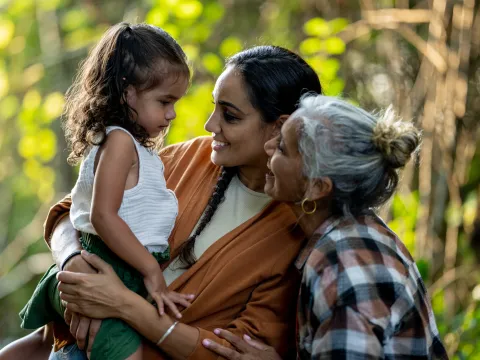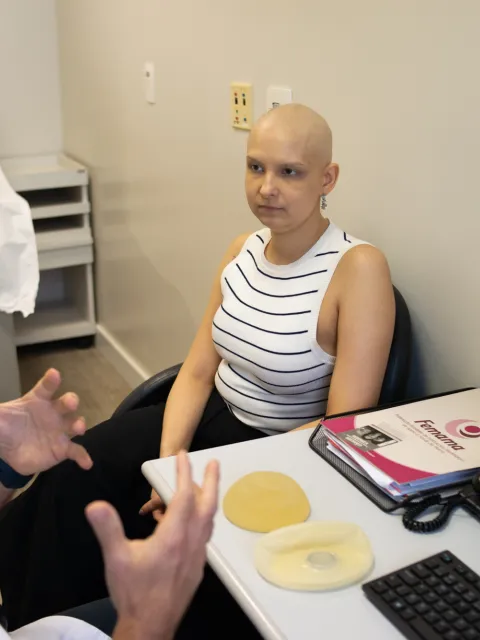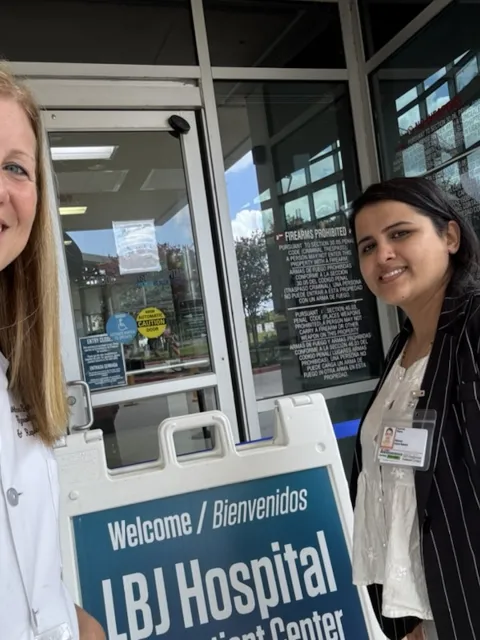Women, power and cancer: turning evidence into action
UICC recently led an online course focused on how gender and power dynamics shape cancer risks, care, workforce, and policy. The aim is to support participants to begin translating the findings of the Lancet Commission on Women, power, and cancer into action.

HIGHLIGHTS
-
UICC’s recent course highlighting the findings from the 2023 Lancet Commission on Women, power, and cancer, provided tools to address gender disparities in access to care, leadership, unpaid caregiving, and economic barriers in cancer control.
-
The course brought together 133 professionals from 45 countries, with 64.7% rating it 5/5 and some already initiating workplace reforms. Only 16% of cancer institutions are led by women, underscoring the systemic power imbalances that the course aimed to challenge.
-
Participants began shaping ideas for reform plans, exploring approaches such as amplifying women’s voices in policymaking, expanding services in conflict zones, and designing gender-sensitive awareness campaigns.
-
Of the 2.3 million women who die prematurely from cancer each year – 1.5 million deaths could be averted through primary prevention or early detection strategies, and 800,000 could be prevented if all women everywhere could access optimal cancer care.
Gender and power dynamics profoundly influence every aspect of cancer control — from health awareness and risk exposure to access to services, diagnosis, treatment, survival, and leadership. Yet the extent of this influence is often underestimated or poorly understood.
For example, women are more likely to experience financial hardship due to cancer, face delays in diagnosis due to gendered health-seeking behaviours, and are underrepresented in clinical trials, which can affect treatment efficacy and safety.
These structural disadvantages contribute to higher rates of premature mortality and poorer outcomes for women globally. Addressing gender in cancer control is therefore not only a matter of equity and public health, but also of social cohesion, economic productivity, and fundamental human rights.
From April to June 2025, UICC delivered the online course ‘Women, power, and cancer – implementing the Lancet Commission's recommendations’, to translate the recommendations of the Commission’s 2023 report into advocacy, research, and policy. The course was developed in partnership with the McCabe Centre for Law and Cancer and members of the Commission.
The landmark report challenged conventional frameworks by urging the cancer control community to see cancer not only as a biomedical issue, but as one deeply rooted in social structures. It issued recommendations for sustained, cross-sectoral action to address these imbalances.
Building on the findings and recommendations of the report, UICC’s online course brought together 133 professionals from 45 countries to look at notably the impact of economics on women’s health, disparities in caregiving responsibilities, barriers to early diagnosis, legal frameworks affecting outcomes, and gender-based discrimination in the medical workforce. Participants benefitted from international, multidisciplinary course leaders and lecturers.
“We designed this course to go beyond awareness and build a global community equipped with the tools and knowledge to transform cancer systems. What we’ve seen is a genuine commitment from participants to challenge inequities and lead change — not just in theory, but in practice.”
— Dr Ophira Ginsburg, Commissioner, Lancet Commission on Women, Power and Cancer
Vandana Mahajan, a palliative care counsellor with Lung Connect India Foundation who participated in the course, said: "Although it is disheartening to know the gender discrimination in cancer control, I take hope from the fact that being a woman is highly empowering. We have the power to bring about the much-needed change in cancer care."
The initiative marked the first time a Lancet Commission had translated its findings into a structured educational programme. The goal is to support a diverse, global cohort of professionals in advocating for and implementing gender-responsive reforms in cancer policy and planning.
Participants engaged in weekly discussions, peer-led learning, expert-led sessions, via UICC Connect, UICC’s global community platform. Some opted to take part in an additional end-of-course activity, drafting reform plans tailored to their contexts. These proposals ranged from integrating women’s voices in policy design to expanding cancer services for women in conflict zones, and incorporating gender-sensitive messaging in awareness campaigns.
“Law is a powerful tool for challenging structural injustice — but only if we equip people to use it. In this course, we aimed to show how legal and policy frameworks can be harnessed to address gender inequities in cancer. What’s been most rewarding is seeing participants begin to apply these insights to their own work: shaping reform plans, interrogating workplace norms, and advocating for change. This course is not just about knowledge, it’s about mobilisation — and the energy and commitment we’ve seen gives real hope for the future.”
– Hayley Jones, Director, McCabe Centre for Law and Cancer
A key theme across the course was the stark under-representation of women in oncology leadership. The Lancet Commission found that among 184 UICC member organisations classified as hospitals, treatment centres or research institutes, only 16% were led by women. In contrast, caregiving responsibilities – much of it unpaid – fall disproportionately on women, who perform more than 75% of all unpaid care work globally. These figures reflect what the Commission described as systemic imbalances in power and decision-making across the cancer continuum.
Some participants shared that the course encouraged them to reconsider aspects of their own environments. One noted that the modules on leadership and the cancer workforce prompted them to begin observing structural inequalities in their workplace more consciously and with new insight. Participants also expressed interest in staying connected as a learning network and continue engaging with the Commission’s recommendations within their institutions and communities.
In the final survey, 65% of respondents strongly indicated that the course helped them improve their understanding of the intersection between gender and cancer. The average rating was 4.6. Beyond the numbers, however, the course and the community it has fostered underscore a broader shift from merely recognising gender inequities to acting on them.

The course is now available for UICC members in self-guided format on UICC Connect.
Last update
Wednesday 06 August 2025
